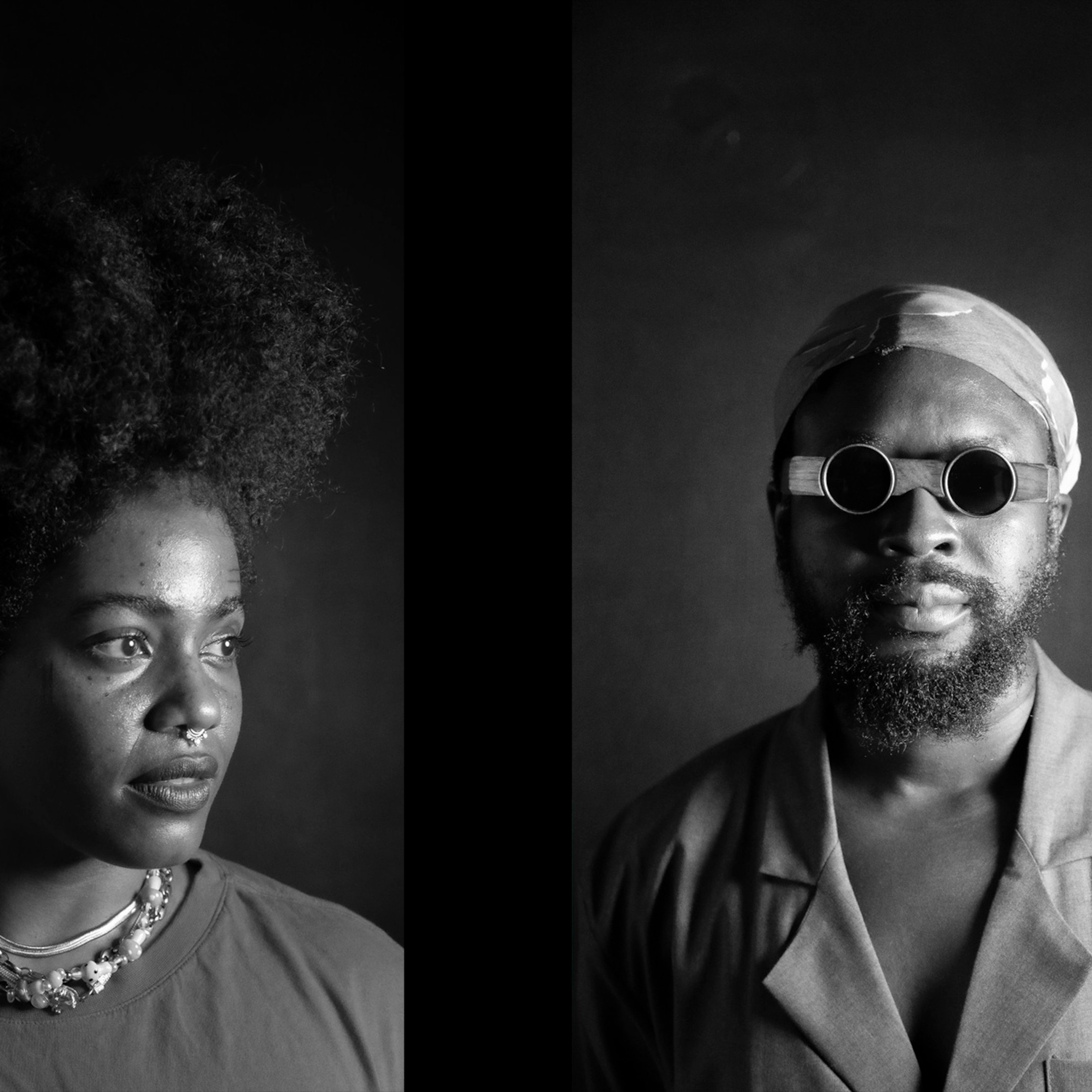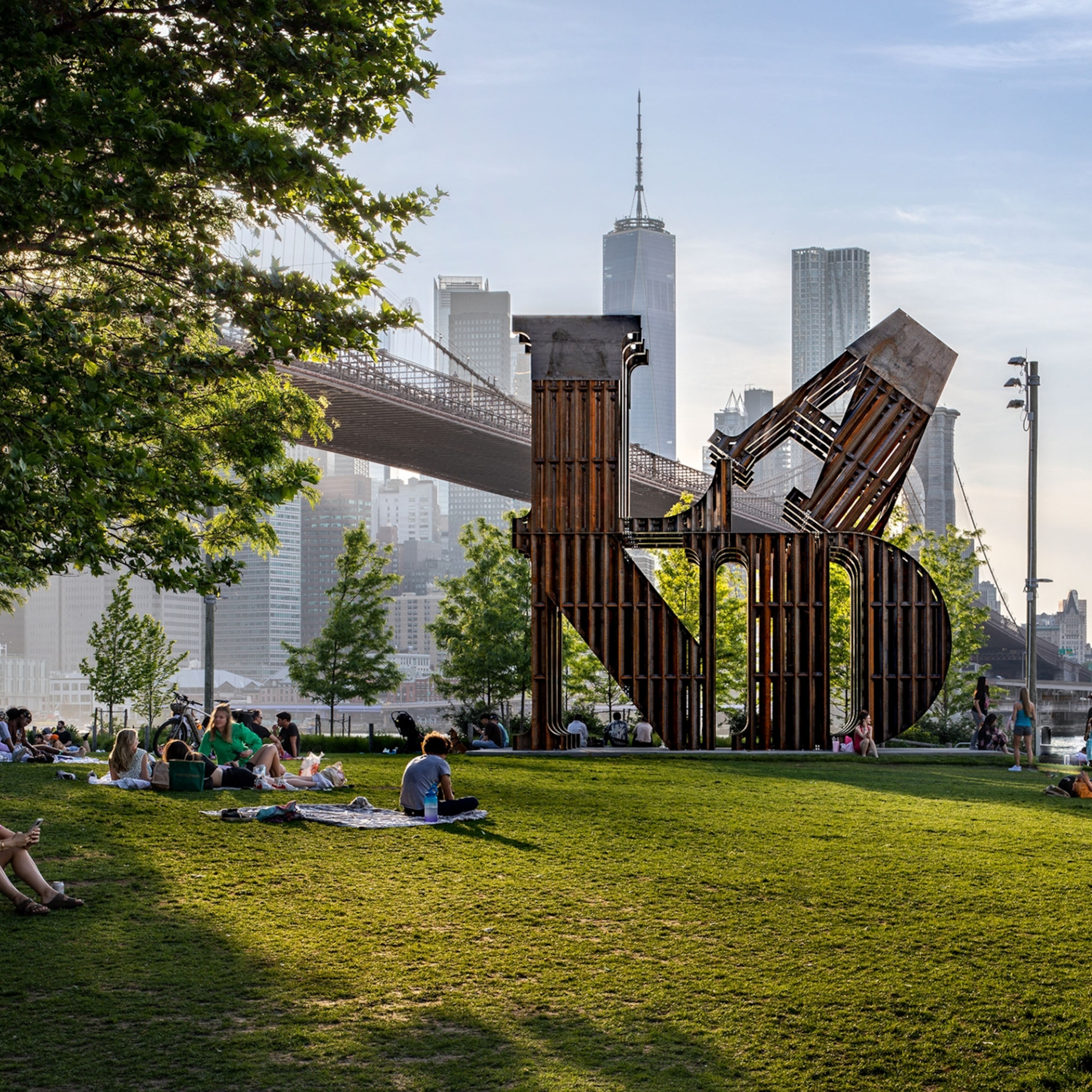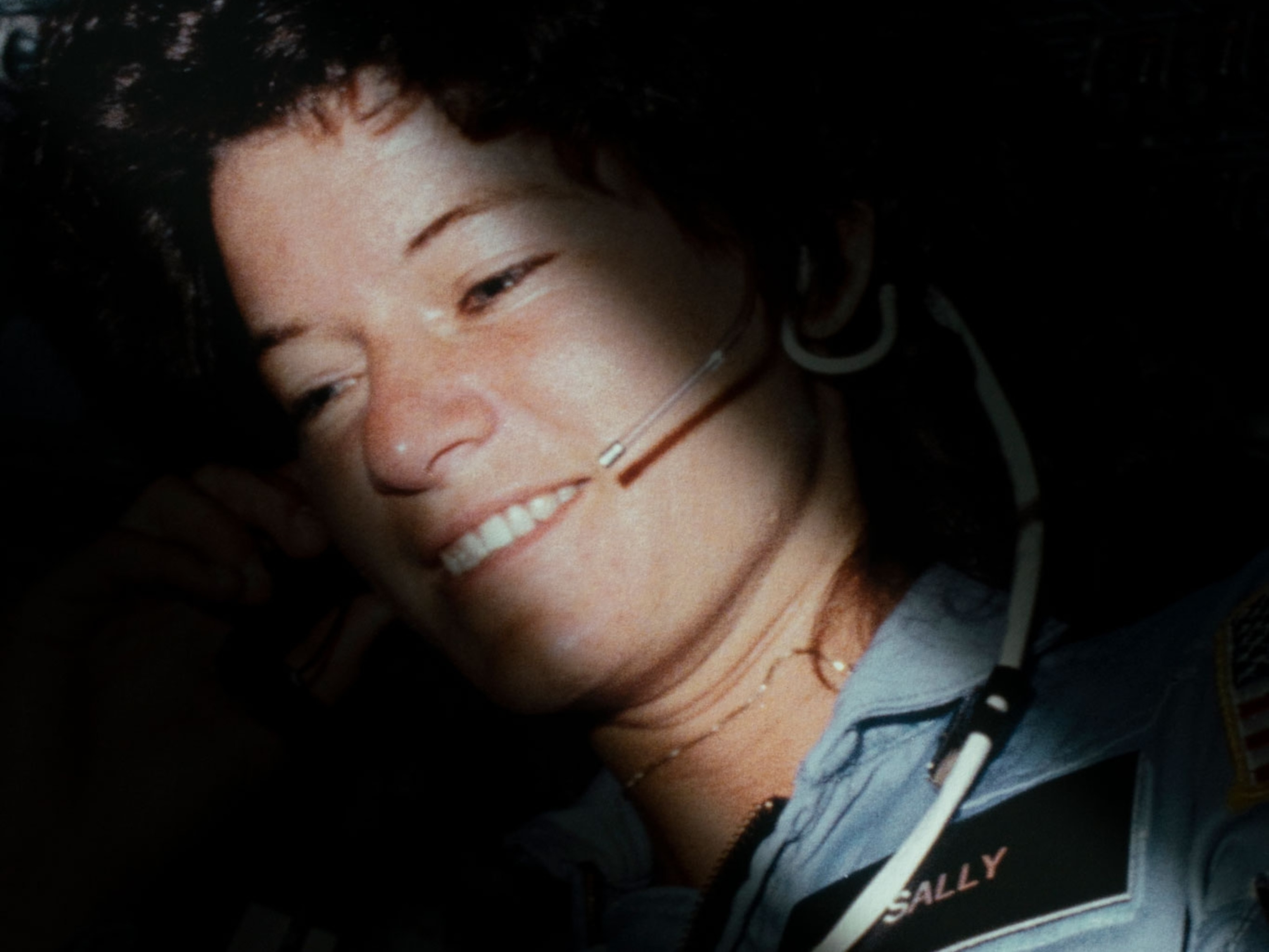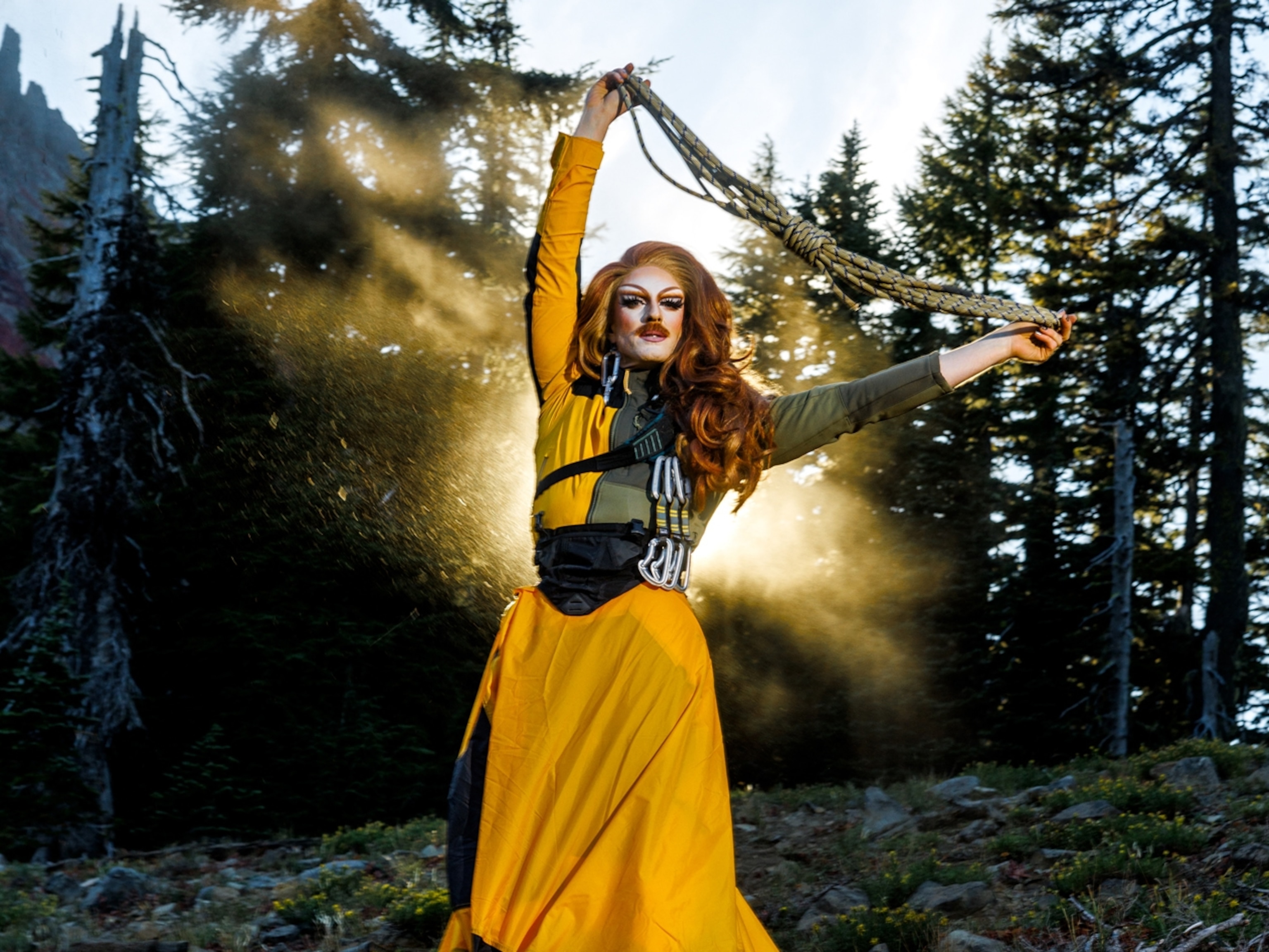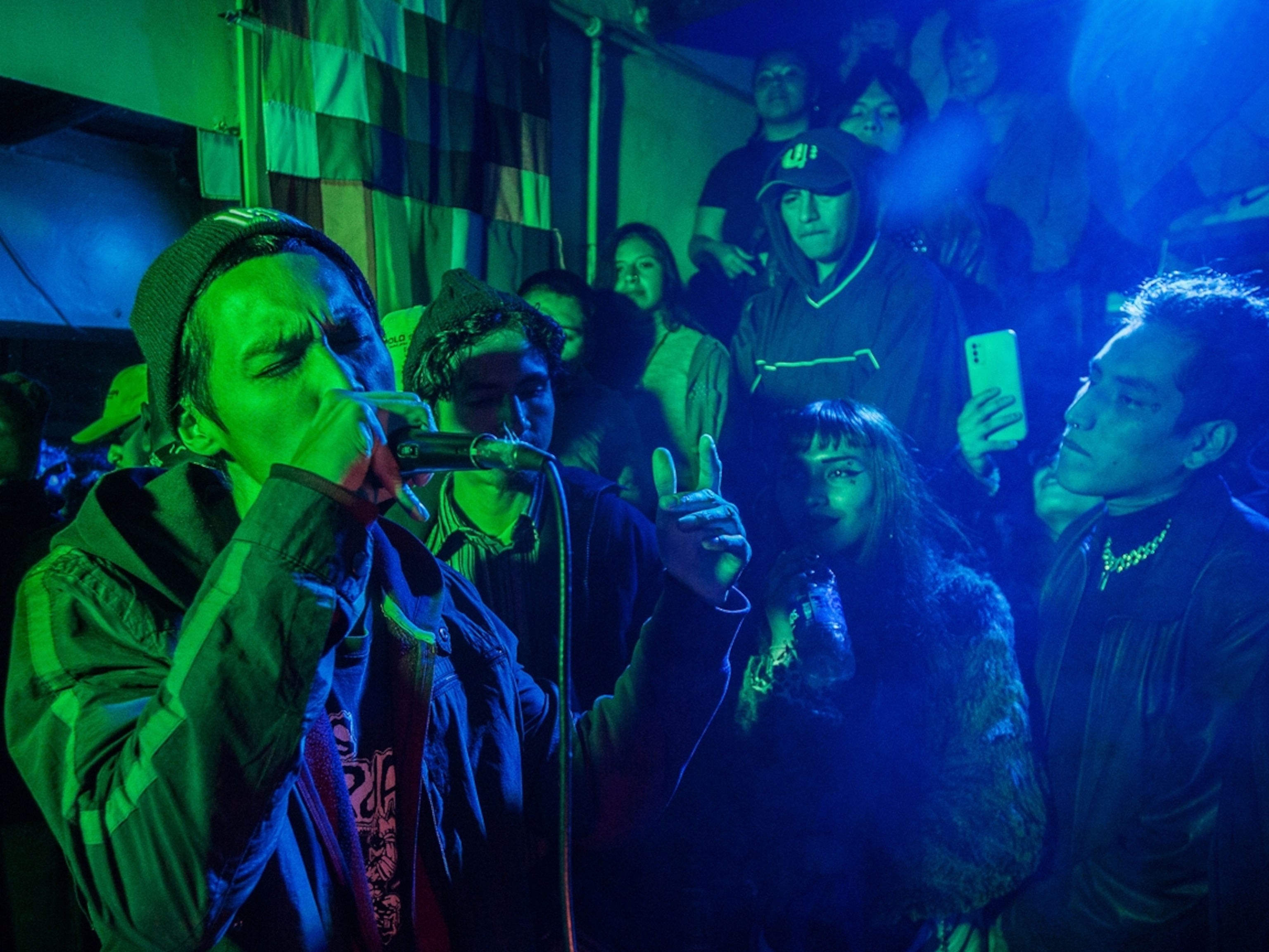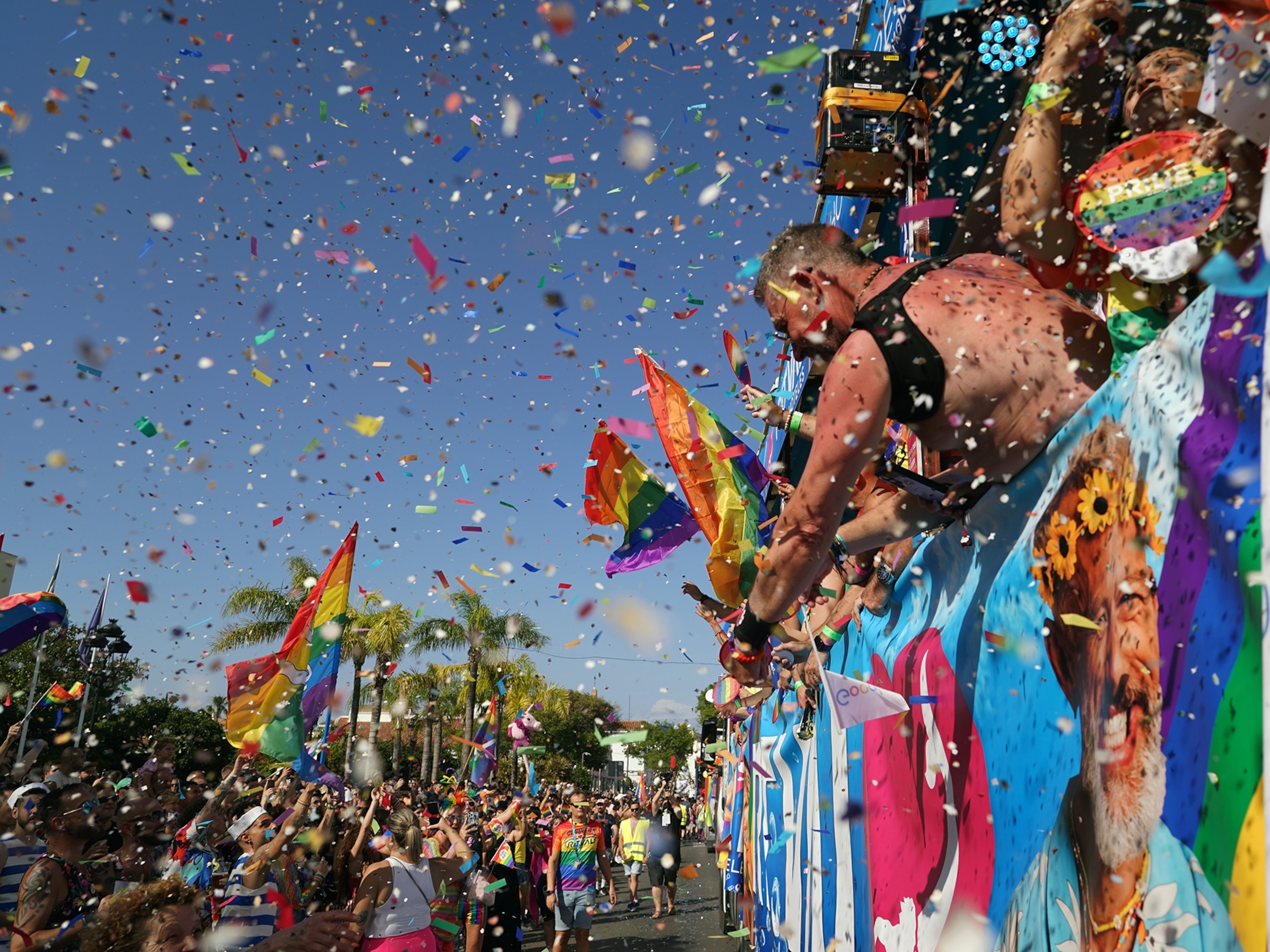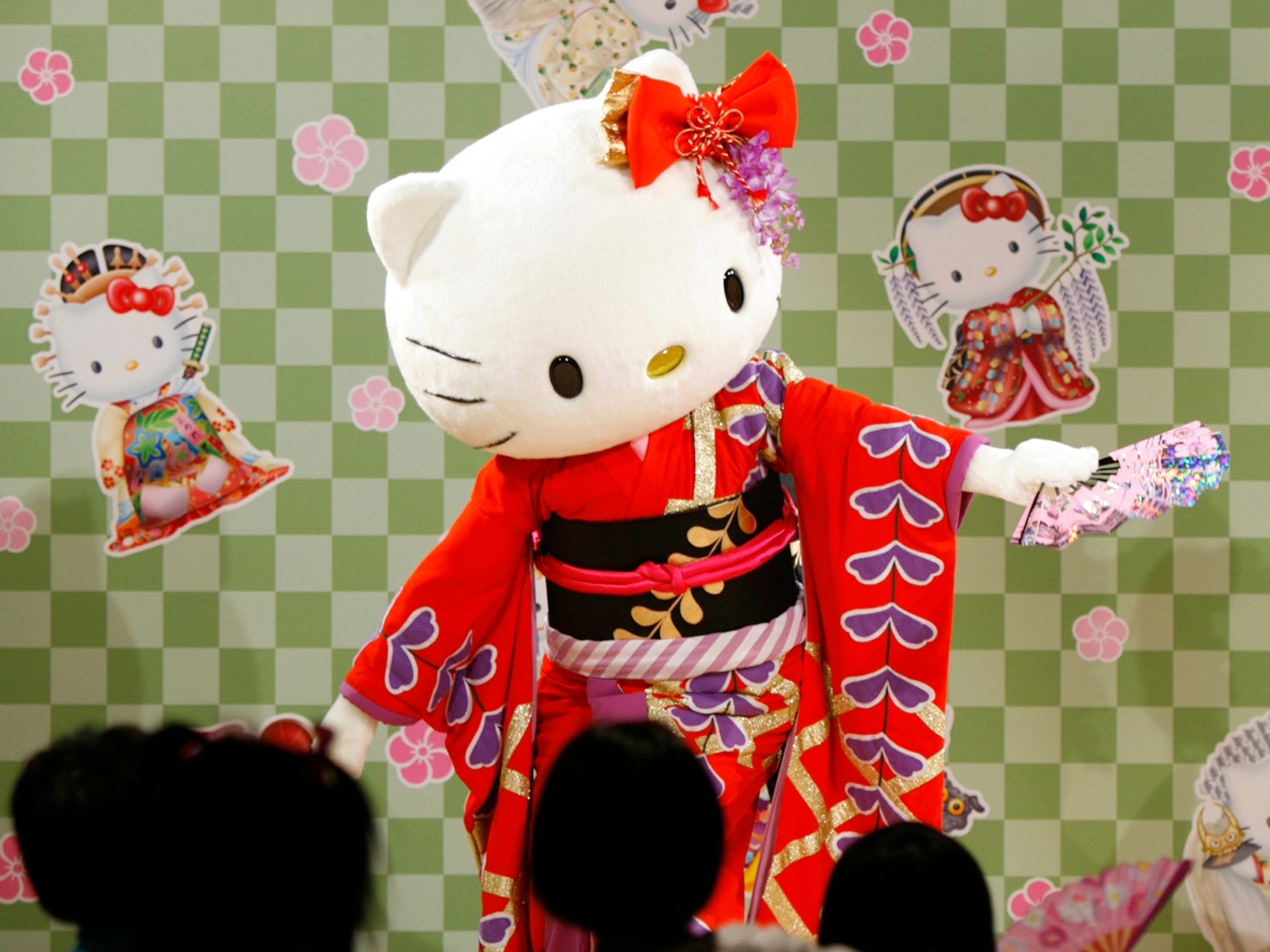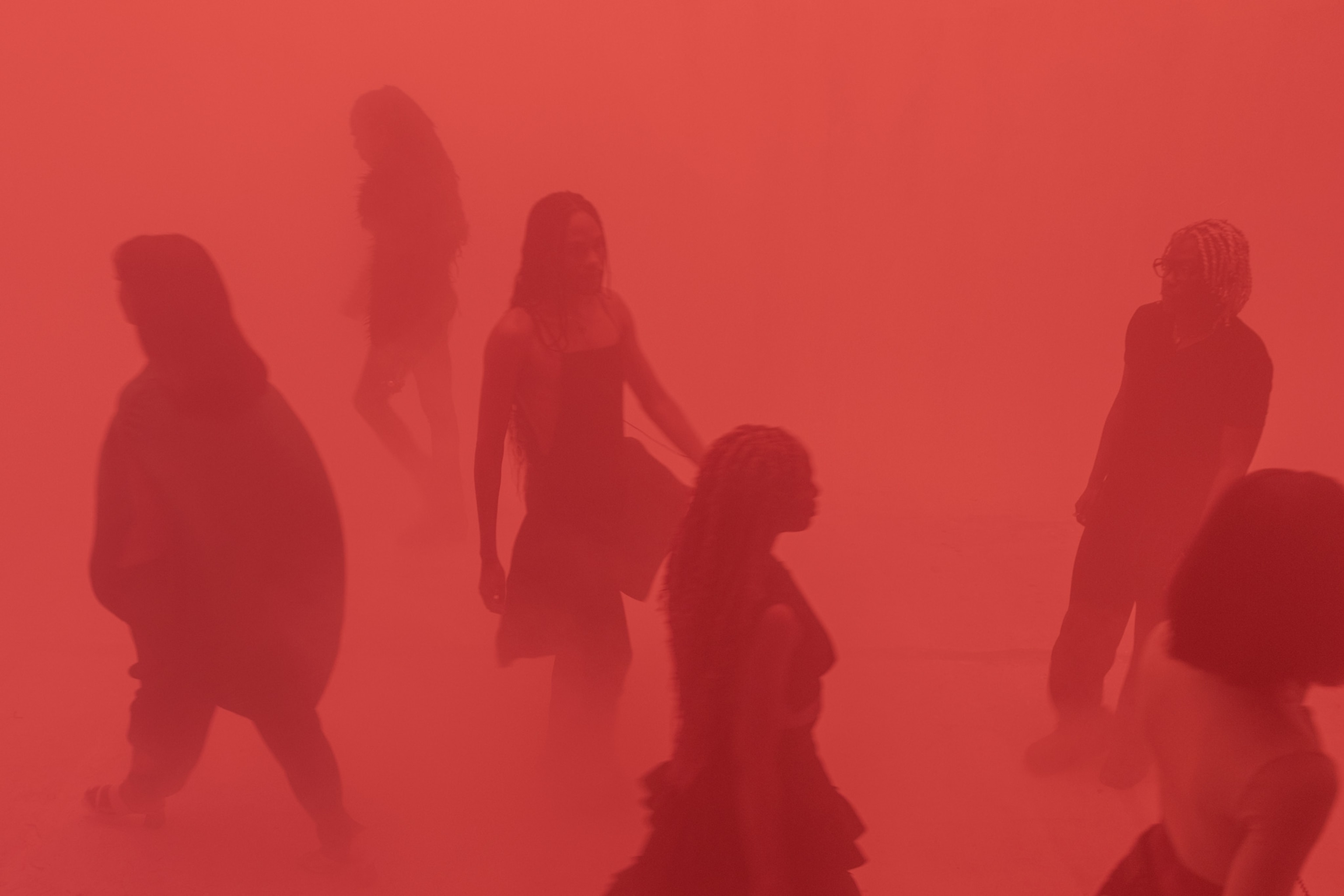
How queer and nonconformist creators are redefining what it means to be Nigerian
A series of portraits show queer and nonconformist Nigerians expressing themselves despite repressive laws and societal stigmas.
Despite repressive laws and societal stigmas, many Indigenous Nigerians, including those in the LGBTQ community, are expressing and celebrating their true identities. Through this series of portraits from photographer and National Geographic Explorer Yagazie Emezi, queer and nonconformist Nigerians explain what it means to reclaim their space and break against colonial norms.
Aaron Ahalu
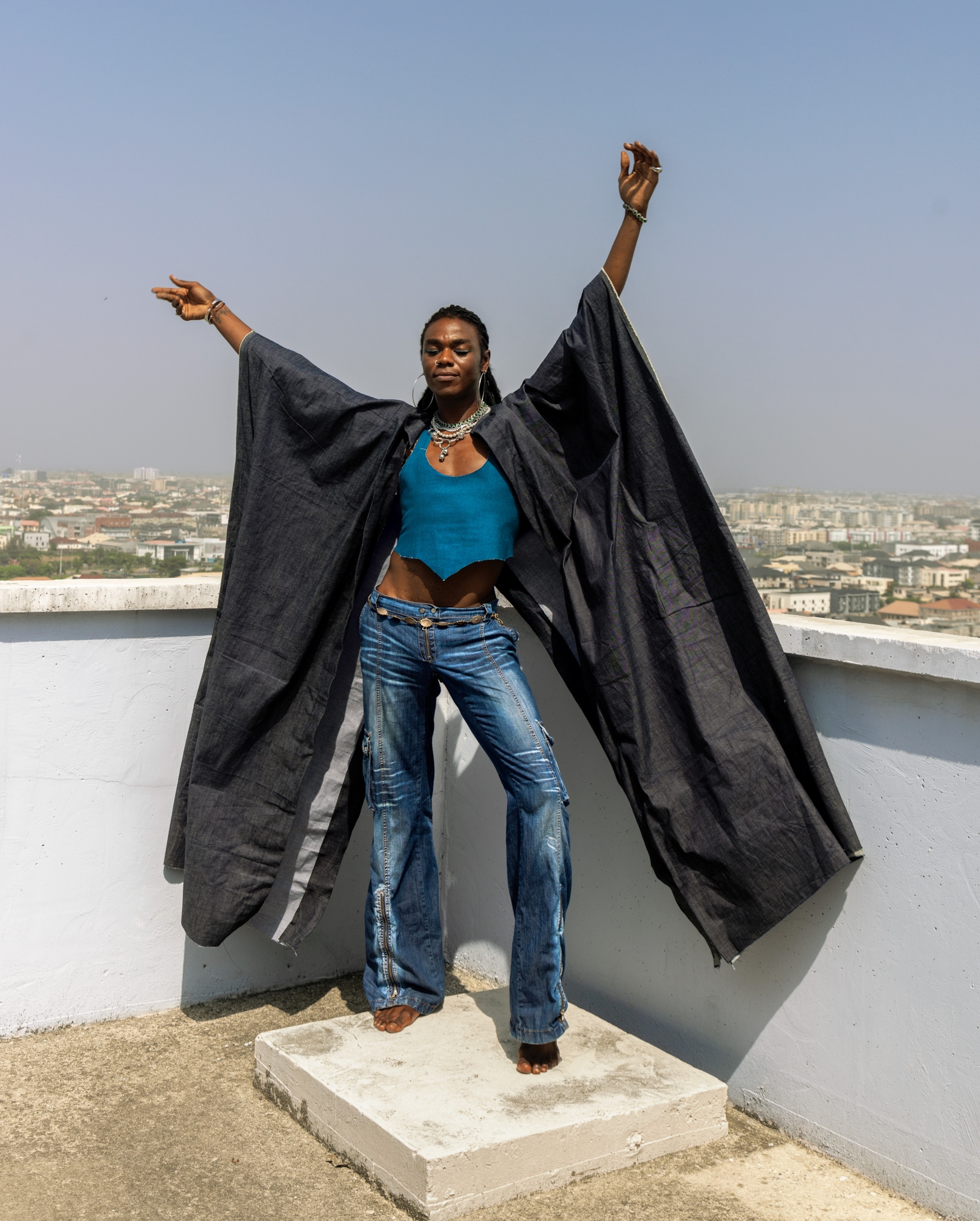
Aaron Ahalu grew up aware of the freedom that yan daudu—a Hausa term that means “men who act like women” and is often used colloquially to describe gay men—afford to their self-expression despite the harsh conditions queer people endure. It is a history Ahalu, who is a queer organizer and communications creative, draws from when considering their Indigenous identity from northern Nigeria, down to how they choose to present themselves through fashion.
Freedom, for me, extends beyond artistic boundaries. It encompasses the lifestyle that rejects capitalist norms and assimilation and allows for authentic self-expression.Aaron Ahalu
Uyai Ikpe-Etim and Ayo Lawson
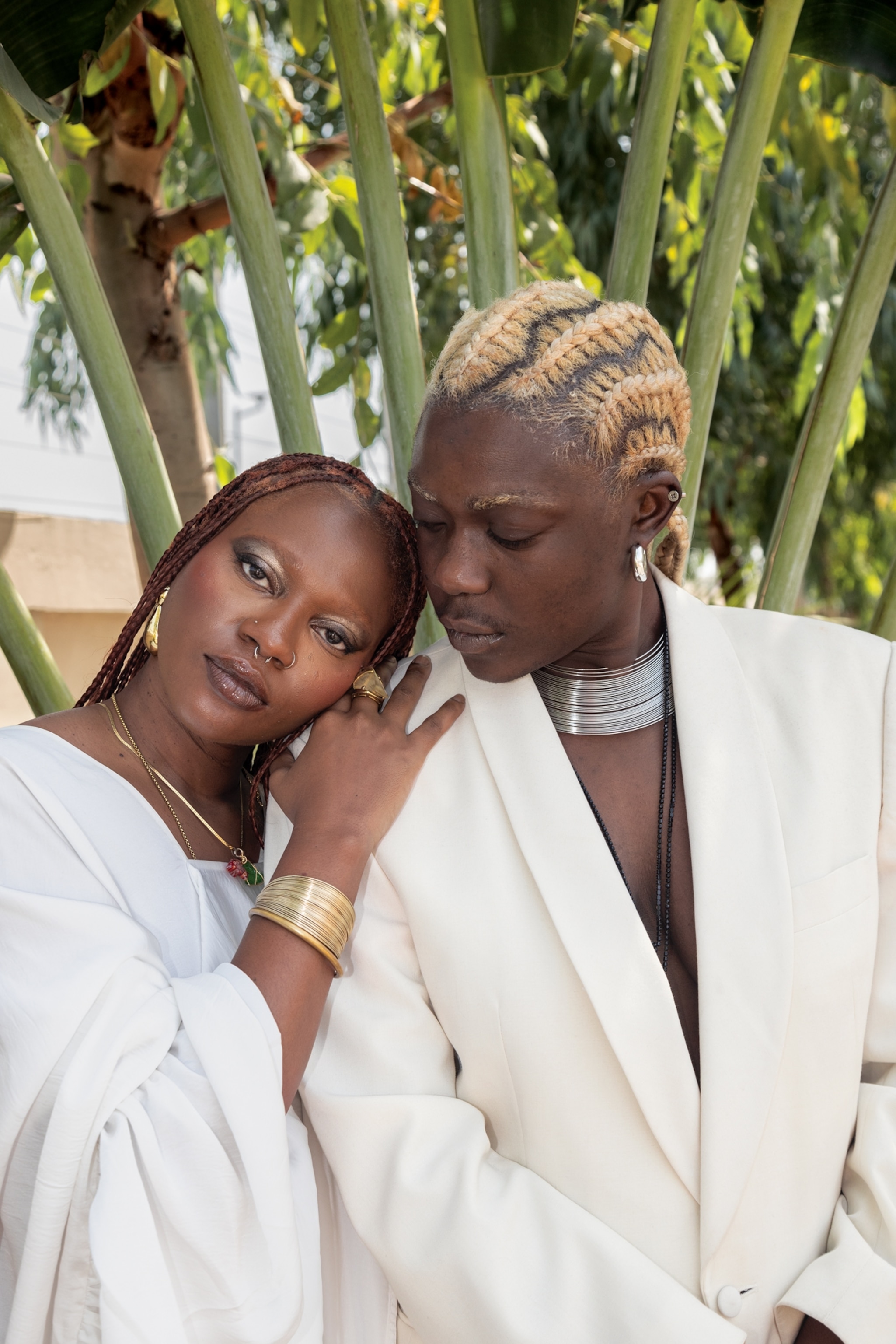
Lagos-based creative Ayo Lawson (at right) has found herself shifting away from her English upbringing to develop and connect with her Yoruba self. She is one of the few publicly queer women in Nigeria, along with her partner, Uyai Ikpe-Etim (at left). The couple, both filmmakers, openly identify as queer on social media and run one of the country’s biggest queer balls. For Ikpe-Etim, indigeneity means acknowledging that she was born and grew up in Lagos but was raised by Ibibio women from southeastern Nigeria, creating a fusion of culture she treasures. “My favorite thing is being able to have those two identities intersect without any issues,” she says.
On this day I can be happy to wear an àdìre agbada, and on another day wear an Ibibio onyonyo, and still feel equally connected to these cultures.Uyai Ikpe-Etim
Zainab Donli
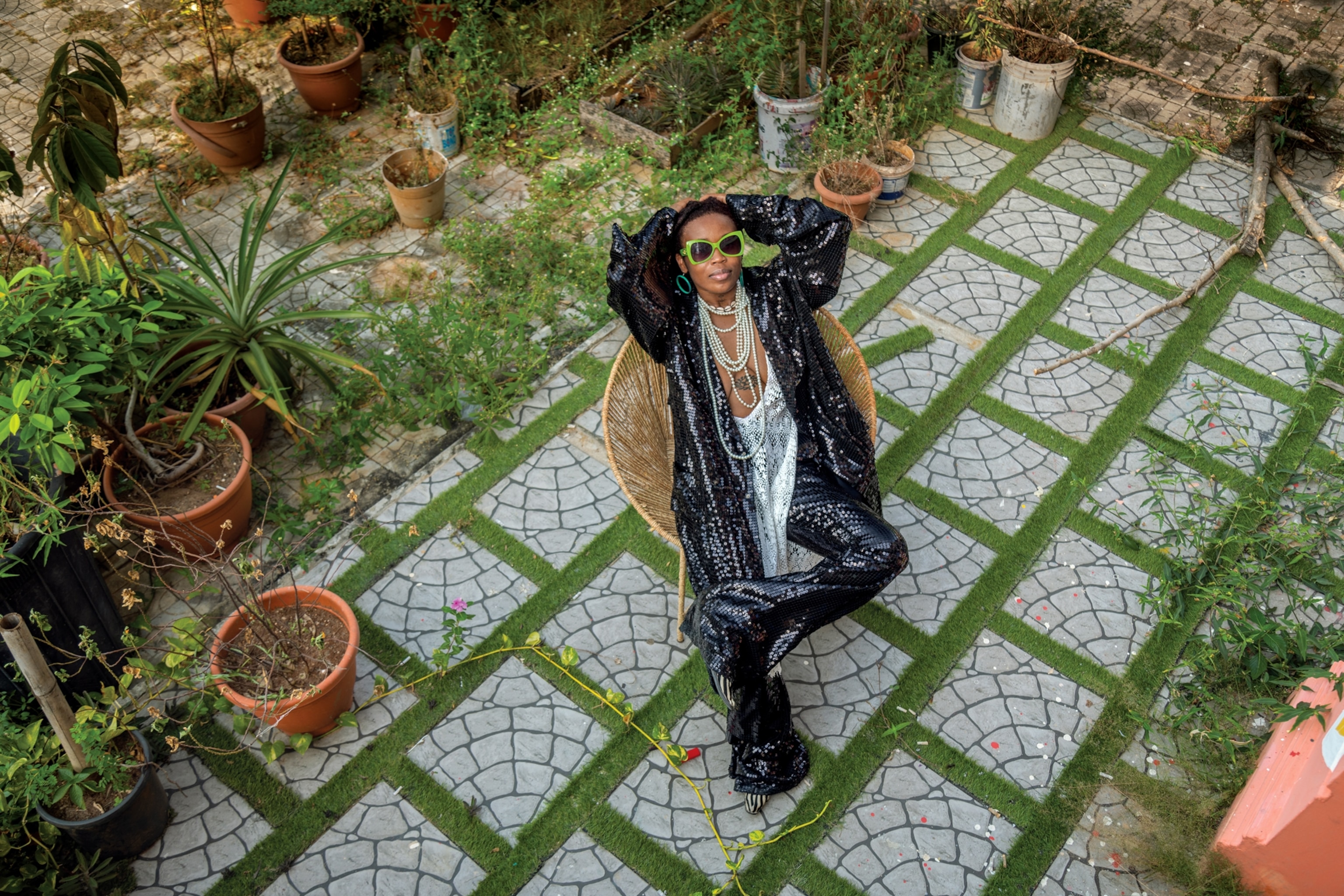
Indie musician Zainab Donli, better known as Lady Donli, approaches the complexities of her Indigenous identity as a constant marriage of the varied cultures and histories that birthed her. Her paternal great-grandfather hailed from Chad and escaped from slave traders before coming to Nigeria. Her father is Hausa from Kaduna, in the north, while her mother is Ijaw from Bayelsa, in the southern part of the country. “I have never specifically felt a sense of belonging thoroughly to my Hausa identity, and neither have I felt the same for my Ijaw identity,” she says. “I’ve always grown up and just thought, I’m Nigerian.”
Freedom is being able to do what I want without fear of condemnation— without fear that my identity as a queer Black woman is going to get in the way of everything that I'm doing.Zainab Donli
Obehi Ekhomu
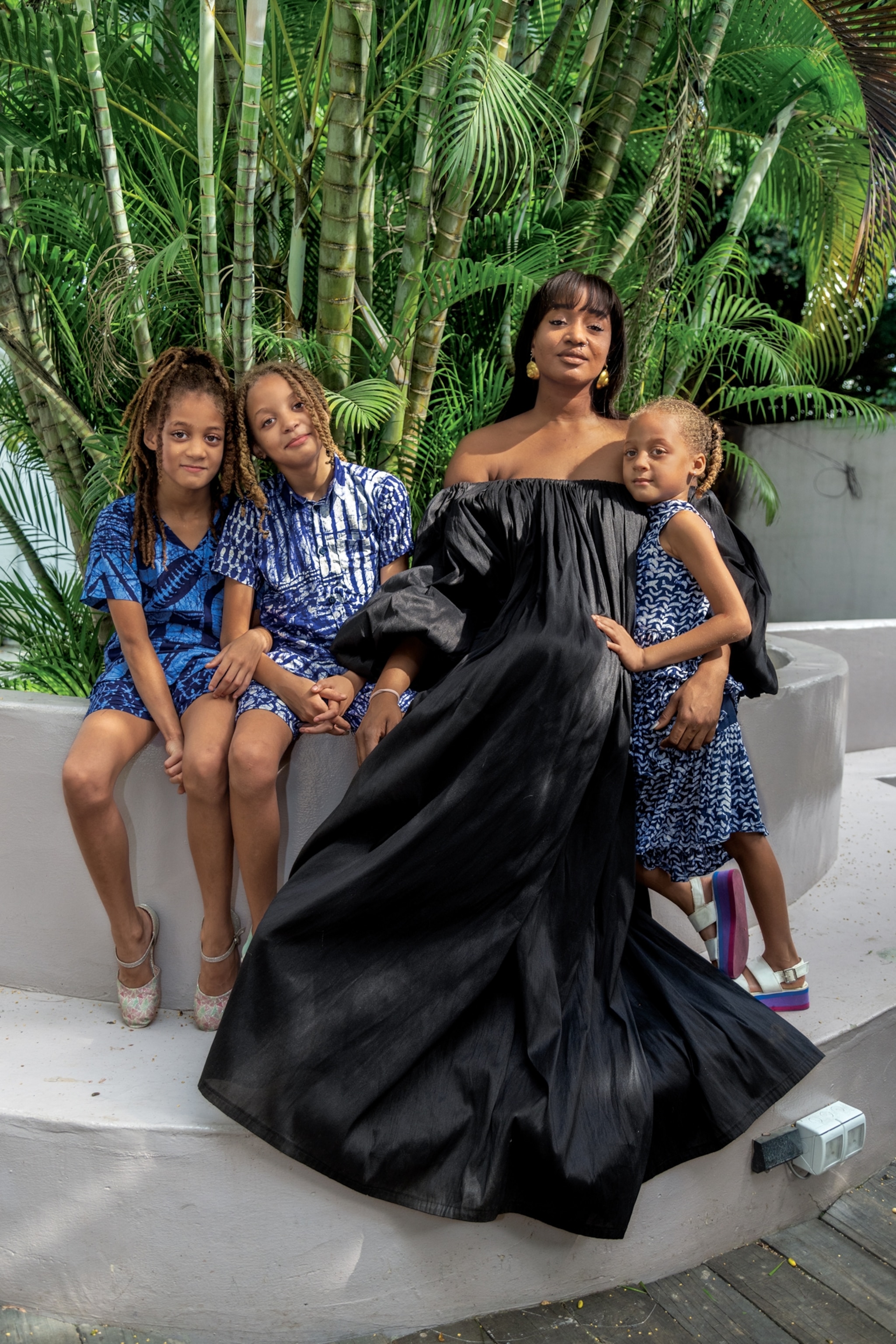
Edo restaurateur Obehi Ekhomu, photographed with her three children, has found a connection between rejecting the pressure of societal acceptance and paying attention to her spiritual guides, whom she describes as two genderless beings. “I have trashed the whole ideology of being accepted or rejected by society … It’s about having a stronger center,” she says, adding that this spiritual center helps her advocate for her needs. It also grounds how she approaches grief as an Edo woman. After she lost her father, he came back to her in dreams, reassuring her.
Being Indigenous means being in touch with my ancestors and learning from lessons that they have passed on … bringing that into the present day.Obehi Ekhomu
Jordyn Omololu Vangei
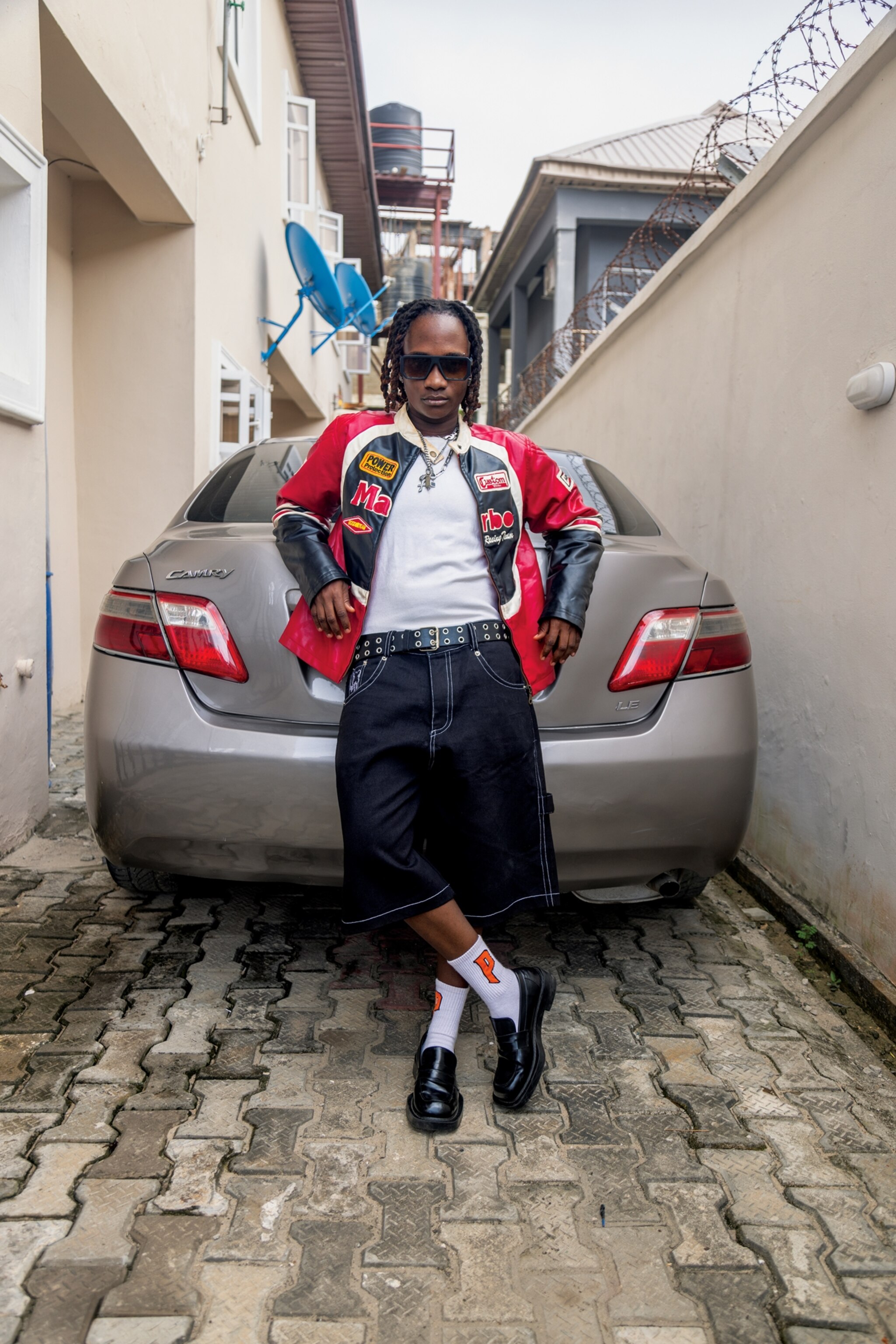
A queer fashion designer, Jordyn Omololu Vangei was raised connected to his Yoruba culture. As a young child, he lived with his mother’s side of the family, speaking Yoruba. That changed when, at five years old, he went to live with his father, who prioritized English and Western sensibilities. “I had to start speaking English,” he says. “So being Indigenous is something I had to hold on to for myself.” Vangei, who is a trans man, finds comfort in the understanding that Yoruba history—his history—is filled with figures who defied convention.
Realizing who I am makes me feel better— [that] was the freedom I needed. Being Native is not a sin; it's nothing to be ashamed of.Jordyn Omololu Vangei
Ezra Olubi
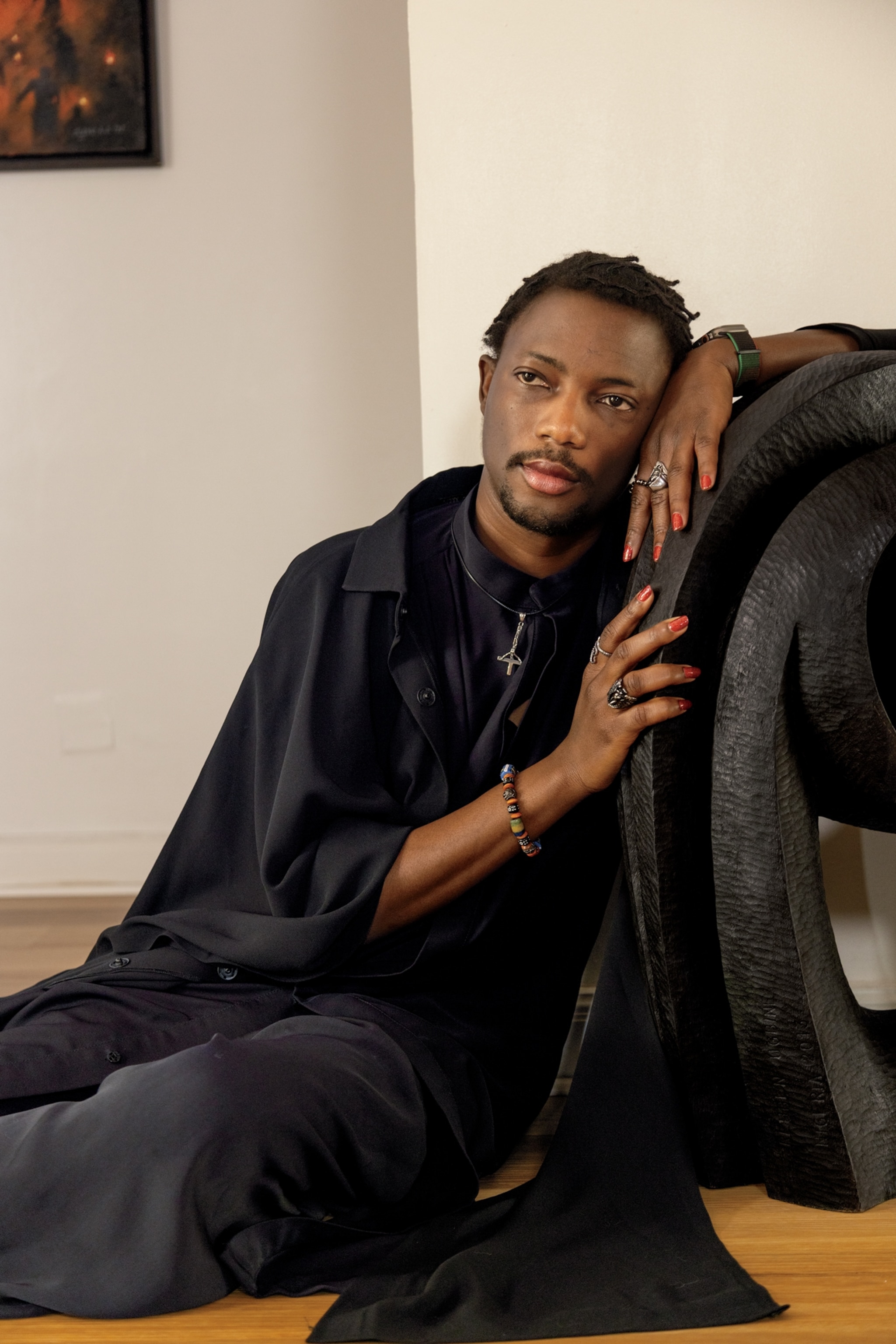
For Ezra Olubi, a renowned innovator and business leader who founded Paystack, one of Nigeria’s biggest tech companies, the concept of Indigenous identity is closely tied to developing one’s structures of safety and freedom. “It has been a series of putting things in place to create an ideal bubble around myself,” he says. “This is something I've been doing over time, depending on wherever I am.” One such bubble is his home, where he was photographed, which is in an area set slightly away from the relentlessness of Lagos.
I like testing the limits of what's acceptable. Like, OK, I want to paint my nails … I should be able to do what I want.Ezra Olubi
Ayodele Olofintuade
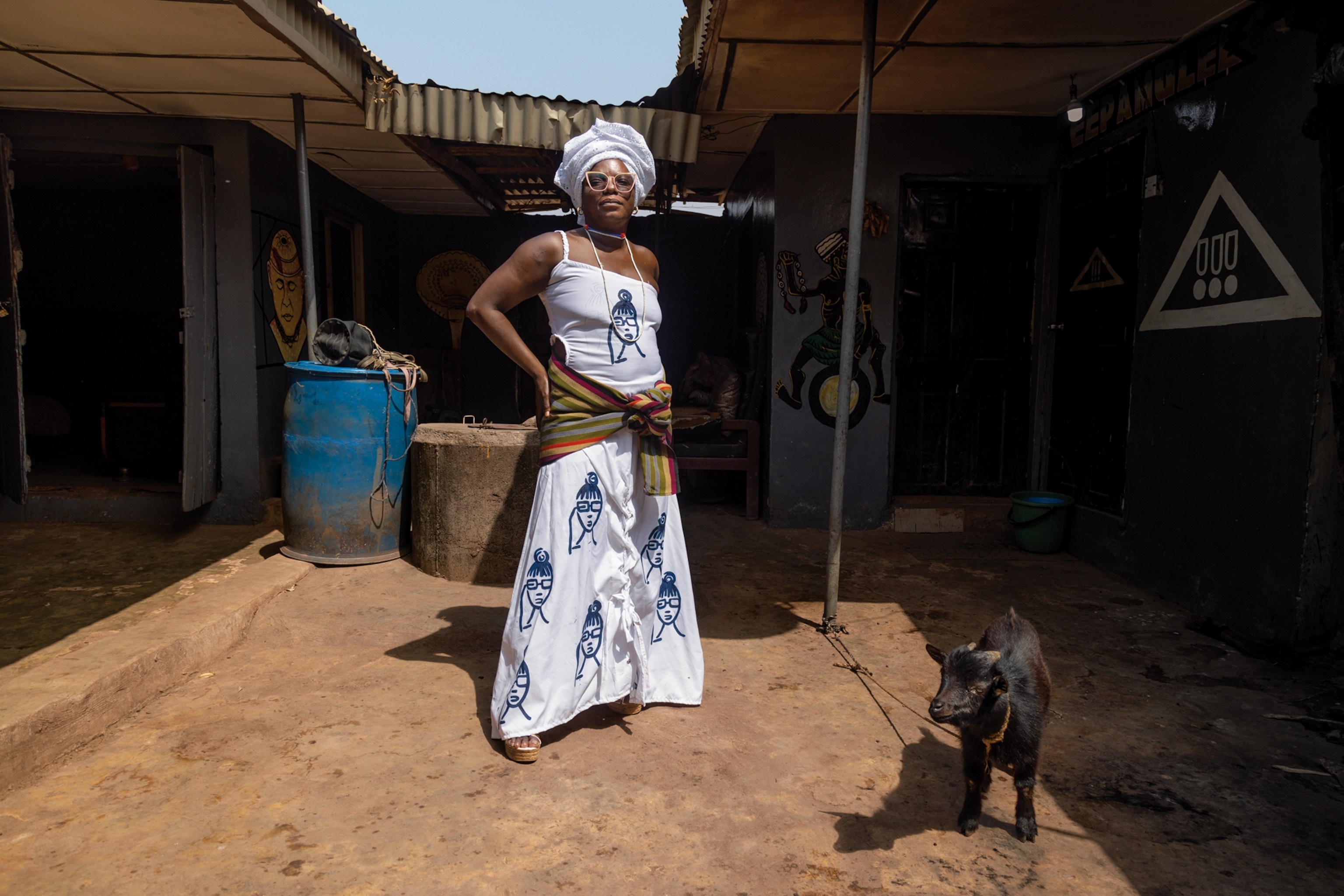
Writer Ayodele Olofintuade is training as a Yoruba traditionalist, a process that involves learning the ways of Yoruba spirituality and its connections to one’s ancestry. “Indigeneity is not conferred; it’s who you are,” she says. Olofintuade, who is a queer woman, says the guidelines of Yoruba traditions are more accepting of nonconformist identities than Western religions.
I am Yoruba and so, automatically, all the wealth, all the miseries, all the flaws, all the perfections of the Yoruba [lineage] I am born into accrues to me. I am connected to my ancestors.Ayodele Olofintuade
Remi Vaughan-Richards
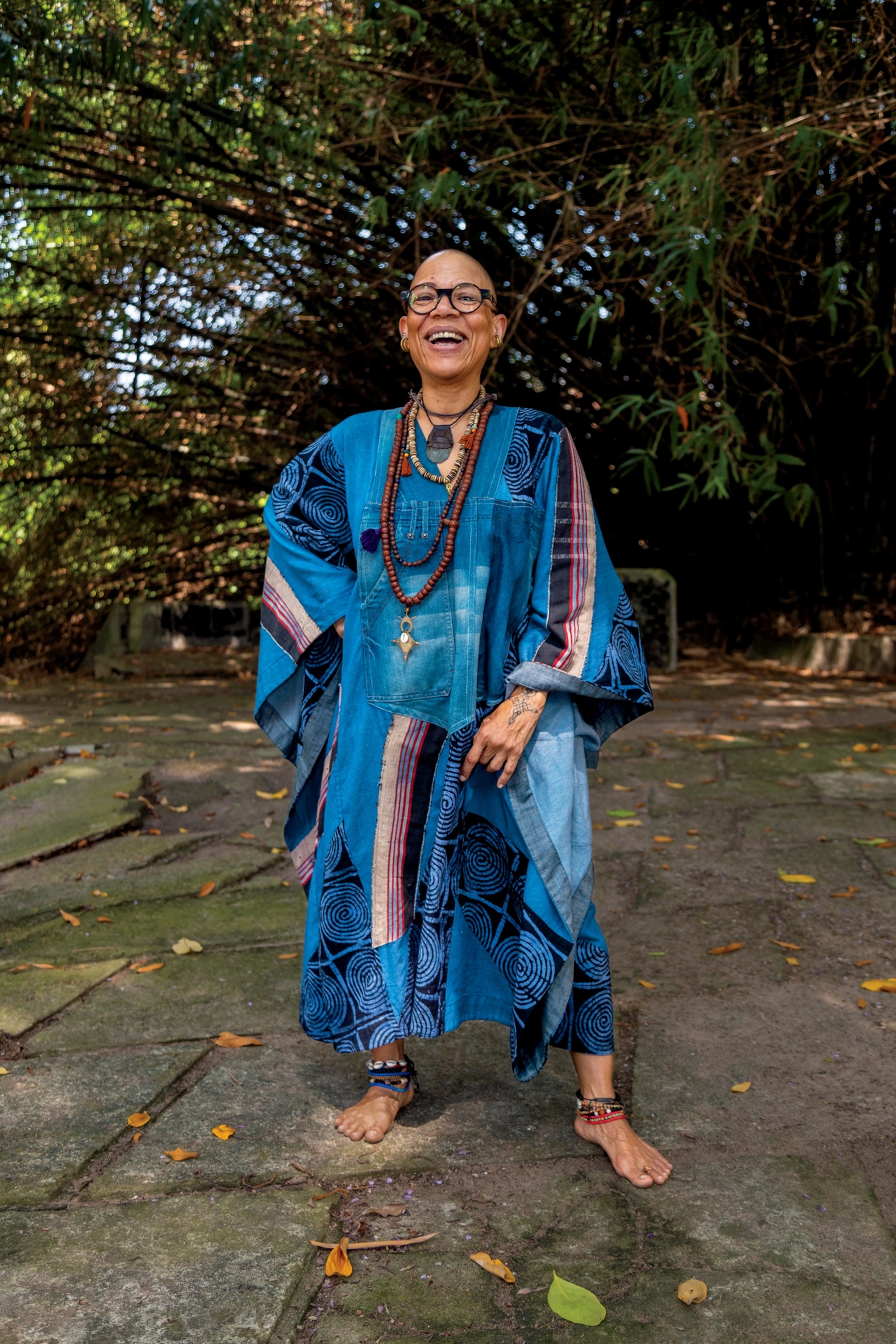
A British Nigerian artist and filmmaker, Remi Vaughan-Richards contemplates the role of race in the development of her Yoruba identity. Her main question: If one straddles various cultures within oneself, who, or what, determines what accurately defines one’s identity? “Being Indigenous, to me, means embracing the culture you’re from … I am Indigenous in the sense that I am interested in traditional spirituality. I am Indigenous in the fact that I like to wear àdìre, which was a way for women to pass messages between each other in the past.”
The whole world has become a mishmash of Westernisms. So how can you be Indigenous? Well, look how I'm dressed for a start; I combine both.Remi Vaughan-Richards
Johntel Peters
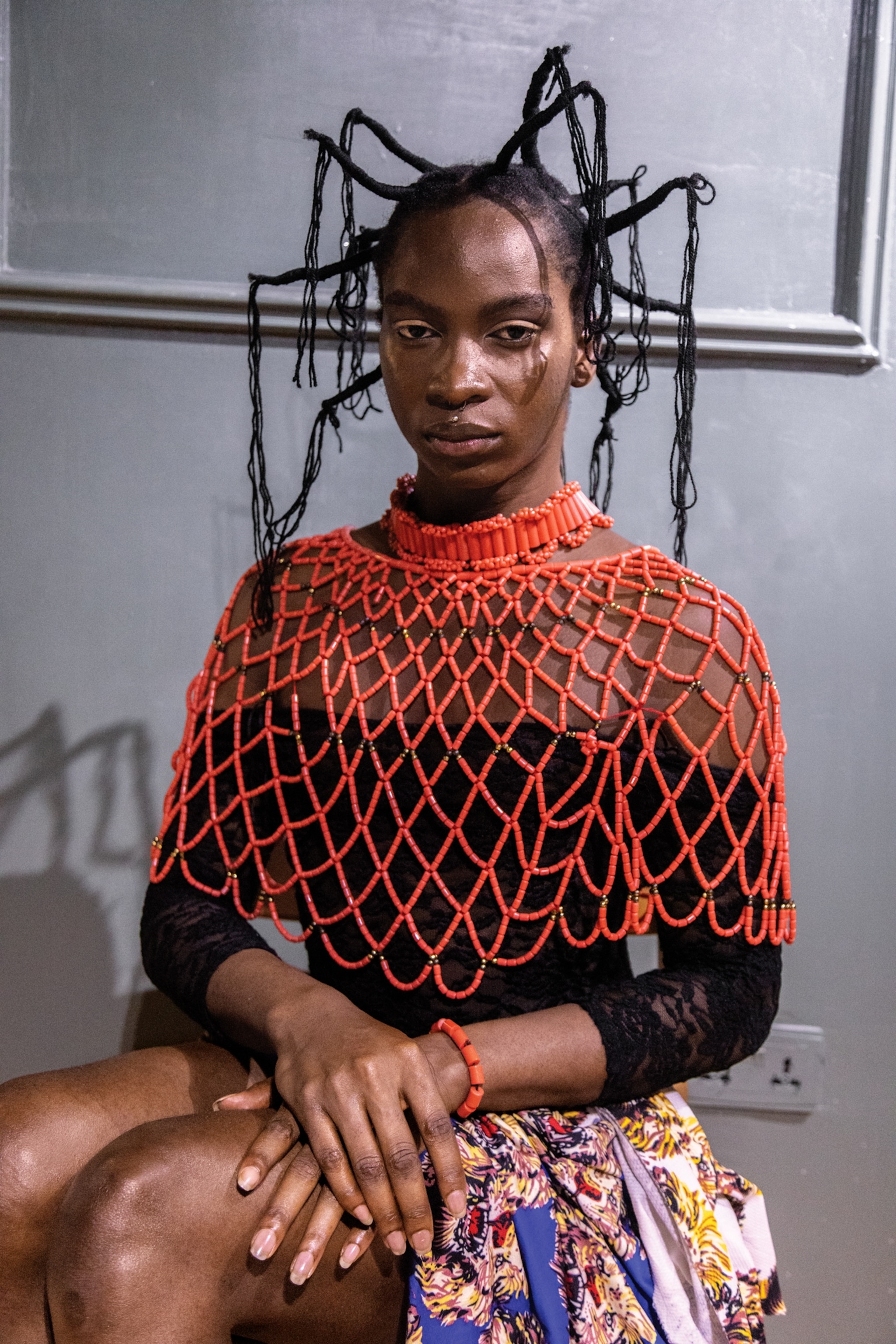
Fashion creative Johntel Peters, or JP, hails from Delta state but grew up disconnected from his Indigenous identity. Peters, who is queer, did not meet the cultural demands expected of him at home and instead found his freedom dancing on the ballroom floor.
I've always known me. I have always seen myself. I am free and beautiful.Peter Junior
Charles Oputa
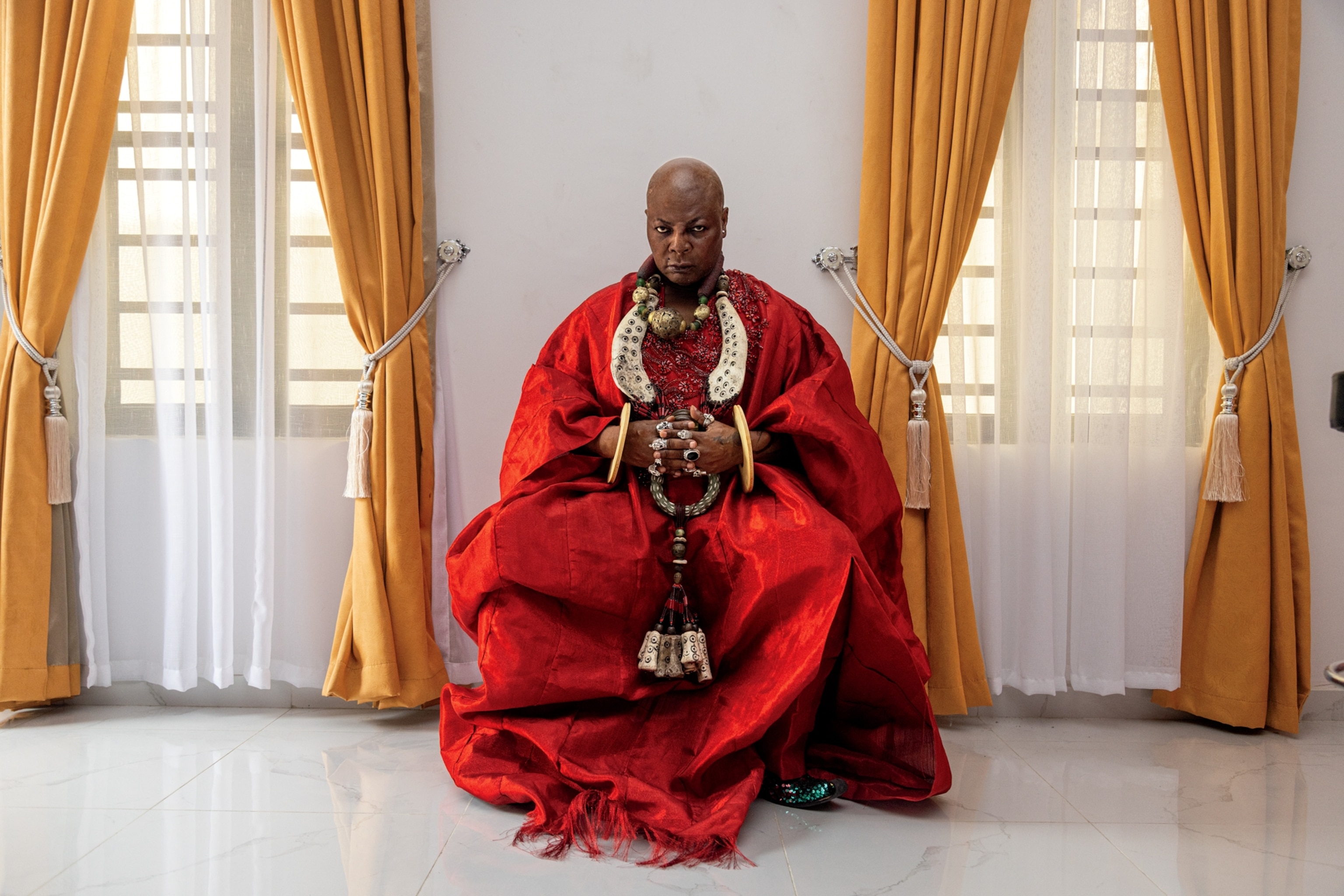
A creative and style nonconformist, Charles Oputa is better known by his artistic alter ego, Charly Boy. He has shifted the scales of masculine presentation in Nigerian media—from his androgynous appearance during the release of his hit album 1990 to a much publicized kiss with entertainer Denrele Edun. Oputa’s father, former Supreme Court of Nigeria justice Chukwudifu Oputa, was Igbo. As Charly Boy, the younger Oputa found a connection between his spiritual guide and his Indigenous identity, adopting a “spiritual warrior” he calls Odudubariba.
I know [Charly Boy] has a feminine side, with all this personality wanting to come out. Sometimes it's my female side that takes the upper hand. Sometimes it's my male, dominant side that takes the upper hand.Charles Oputa
Nigerian journalist Nelson C.J. (Igbo) wrote the captions for this photo series. C.J. is based in Lagos and has been published in the New York Times, Rolling Stone, and Time.
Styling by Uche Uba.
A version of this story appears in the July 2024 special issue on "Indigenous Futures" of National Geographic magazine.

